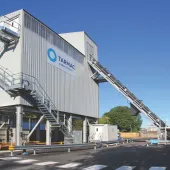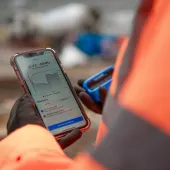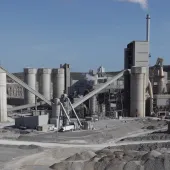Delivering Future-resilient Infrastructure

First published in the April 2016 issue of Quarry Management
Tarmac’s sustainability director, Dr Martyn Kenny, highlights the need for collaborative innovation and sustainable solutions
It is an uncertain world but there is certainty that climate change, population growth, urbanization and resource scarcity will continue to be the dominant socio-economic mega-trends affecting our sector.
Among the impacts will be much greater demand for energy, water and other resources, and the durability of our infrastructure in the face of more extreme weather.
So, we need to ensure that we future-proof the infrastructure that we are building now, as well as thinking about how we deliver rail, roads and other civils projects differently in the years ahead.
We cannot miss the opportunity to act, and that action should encompass both product innovation and ways of working.
Whole-life thinking in product development and its application to projects is key. For example, while we need to consider the carbon used in the manufacture of a material, just as important – arguably more so – is the embodied carbon used over the lifetime of a structure.
Heavyweight and durable materials such as concrete are products which may not have the lowest carbon at point of manufacture, but their longevity makes them the more sustainable option.
Product innovation can also help us design for growing and urgent issues such as flood management. Sustainable drainage systems, including new-style porous concrete and asphalt mixes, are being increasingly used as permeable surfaces for flood mitigation and controlling rainwater.
However, if the infrastructure sector is to meaningfully adapt to the mega-trends outlined earlier, we have to work together across the supply chain.
That means greater collaboration between clients, contractors, materials providers and other suppliers. At an early stage on projects – planning and strategy, not just delivery – we need to harness the sustainability expertise which exists across organizations and work together to find the best solutions.
In projects which Tarmac have recently been involved with, that sort of open working relationship, where the materials provider moves from being just product supplier to consultant, has yielded genuine and impactful sustainability benefits.
This way of working now needs to evolve from the micro level – project by project, bit by bit – to the macro; a collaborative approach used by everyone, which scales up the positive impacts we can have on our communities and planet.
If our sector can crack innovation, not just in the creation of sustainable products, but also in sustainable project delivery, we will be in the best possible shape to design and deliver future-resilient infrastructure.






